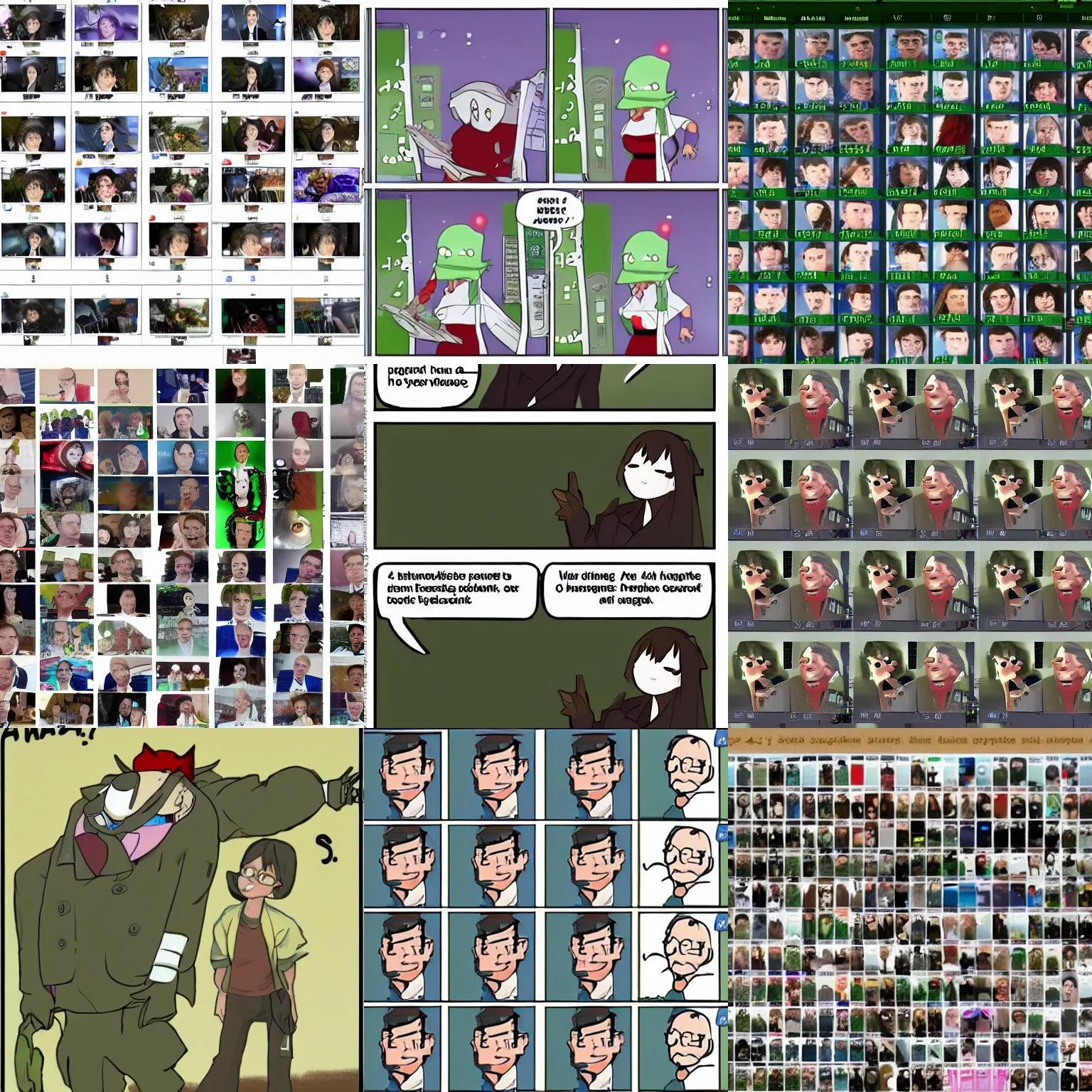4chan Trash Archive, a sprawling repository of the website’s most controversial and often offensive content, has become a subject of fascination and concern. This digital graveyard holds a mirror to the anonymous forum’s history, showcasing its evolution, its darkest moments, and the complex motivations behind its preservation. Understanding this archive requires navigating ethical dilemmas, legal grey areas, and the very nature of internet culture itself.
Learn about more about the process of yakima wa jobs craigslist in the field.
The archive contains a vast and varied collection of images, videos, text posts, and other media, ranging from the absurd to the deeply disturbing. Its creation reflects a desire to document a significant, albeit controversial, slice of internet history, while also raising questions about the responsibility of archiving potentially harmful material. The archive’s existence sparks debates about freedom of information, online censorship, and the long-term consequences of readily accessible digital records.
Understanding the 4chan Trash Archive Phenomenon
The 4chan Trash Archive is a sprawling repository of content from the anonymous imageboard website 4chan. Its existence raises complex questions about online archiving, internet culture, and the legal and ethical implications of preserving potentially offensive or illegal material. This analysis explores the archive’s historical context, content, motivations, and impact.
Historical Context of the 4chan Trash Archive
The 4chan Trash Archive emerged organically from the decentralized and ephemeral nature of 4chan itself. Unlike many websites, 4chan does not maintain a comprehensive archive of its own posts. This led to the creation of independent archives, with the “Trash Archive” becoming a prominent example. Its precise origins are difficult to pinpoint, but its growth reflects the increasing interest in preserving and analyzing the unique online culture fostered by 4chan.
Types of Content Found in the Archive
The archive contains a vast and diverse range of content, reflecting the multifaceted nature of 4chan itself. This includes images, videos, text posts, and threads spanning a wide spectrum of topics and styles.
- Images: ranging from mundane to explicit, including memes, reaction images, and user-generated art.
- Videos: encompassing amateur productions, clips from other sources, and recordings of online events.
- Text posts and threads: covering discussions on a wide variety of topics, from politics and technology to niche interests and absurdist humor.
Motivations Behind Creating and Maintaining the Archive
The motivations behind the archive are varied and likely include a combination of factors. Preservation of internet history, research purposes, and the fascination with 4chan’s unique online culture are likely key drivers. Some may also be driven by a desire to document the evolution of internet memes and trends.
Comparison with Other Online Archives
Compared to other online archives like the Internet Archive’s Wayback Machine, the 4chan Trash Archive focuses specifically on a single, highly dynamic website known for its controversial content. While the Wayback Machine aims for broad coverage, the Trash Archive is more specialized and potentially more legally precarious.
Characteristics Defining the “Trash” Aspect of the Archive
The “trash” descriptor highlights the archive’s inclusion of content often considered offensive, illegal, or otherwise undesirable. This includes explicit material, hate speech, and content promoting illegal activities. The term itself is subjective and reflects the varying sensitivities of different users.
The Nature of Content Within the Archive
Categorizing the content within the 4chan Trash Archive is a complex task due to its sheer volume and diversity. However, some broad categories can be identified, each with its own evolution and legal implications.
Examples of Content Categories
- Memes and Viral Content: The archive serves as a repository for the evolution of internet memes, tracing their origins and transformations.
- Controversial and Offensive Content: This includes material that may be hateful, discriminatory, or otherwise harmful.
- User-Generated Media: The archive contains a significant amount of user-created content, such as images, videos, and text posts.
- Documentations of Online Events: The archive may capture significant online events and discussions, offering a historical record.
Evolution of Content Types Over Time
The types of content within the archive have evolved alongside the changing trends and culture of 4chan. Early content might reflect simpler forms of online humor and communication, while more recent content may reflect the impact of social media and broader internet trends.
Potential Legal Implications of Certain Content Types
The archive’s inclusion of potentially illegal content, such as child sexual abuse material (CSAM) or content promoting violence, raises significant legal concerns. The operators of the archive face potential liability for hosting such material, depending on jurisdiction and the specific content.
Ethical Considerations Surrounding Preservation and Accessibility
The ethical implications of preserving and making accessible potentially harmful content are significant. Balancing the value of historical preservation with the potential for harm caused by the dissemination of offensive or illegal material is a crucial challenge.
Categorization of Content Types and Prevalence
| Content Type | Prevalence (Estimated) | Legal Implications | Ethical Considerations |
|---|---|---|---|
| Memes and Viral Content | High | Generally Low | Minimal |
| Controversial Content | High | Potentially High | Significant |
| User-Generated Media | Very High | Variable | Variable |
| Documentation of Online Events | Medium | Low to Medium | Low to Medium |
Impact and Influence of the Archive
The 4chan Trash Archive has had a notable impact on internet culture and online discourse, serving as both a historical record and a source of ongoing debate.
Impact on Internet Culture and Online Discourse
The archive’s existence has contributed to discussions about online anonymity, freedom of speech, and the challenges of moderating online content. It has also influenced the study of internet culture and online communities.
Potential as a Historical Resource
The archive can be a valuable resource for researchers studying internet culture, online communities, and the evolution of memes and online trends. It provides a snapshot of a significant period in internet history.
Shaping Perceptions of 4chan and Its Community
The archive’s content can shape perceptions of 4chan, potentially reinforcing negative stereotypes while also offering a nuanced view of the community’s diversity and complexity.
Potential Uses for Research Purposes
Researchers in fields like sociology and digital anthropology can utilize the archive to study online behavior, social dynamics, and the spread of information within online communities.
Comparison of Archive’s Impact to Similar Archives, 4chan trash archive
| Archive | Focus | Impact on Internet Culture | Research Value |
|---|---|---|---|
| 4chan Trash Archive | 4chan | High, controversial | High, specialized |
| Wayback Machine | Broad internet | High, widespread | Very High, general |
| Reddit Archive | Medium, focused | Medium, specialized |
Technical Aspects of the Archive: 4chan Trash Archive
Maintaining the 4chan Trash Archive presents significant technical challenges due to the sheer volume and variety of data, requiring specialized infrastructure and strategies.
Technical Infrastructure and Maintenance Methods
The archive likely relies on distributed storage systems and robust database management to handle the large volume of data. Data scraping and automated archiving techniques are likely employed to collect and process information from 4chan.
Challenges in Preserving a Large and Diverse Data Collection

Challenges include data loss due to server failures, corruption, or obsolescence of file formats. Ensuring data integrity and accessibility over the long term requires significant ongoing effort.
Potential Risks Associated with Maintaining the Archive
Risks include legal action from individuals or organizations whose content is included in the archive, as well as potential for censorship or takedown requests.
Methods for Ensuring Long-Term Accessibility and Preservation
Strategies include using redundant storage systems, regularly backing up data, and employing robust data management practices. Migrating data to new formats as needed is also crucial.
Hypothetical System for Improving Organization and Searchability
A hypothetical system could utilize advanced search algorithms, metadata tagging, and machine learning techniques to improve searchability and organization. A user-friendly interface with advanced filtering options would also enhance usability.
The User Experience and Community
The user experience of interacting with the 4chan Trash Archive varies depending on the user’s motivations and technical skills. The archive’s community, if any, is likely loosely connected and primarily online.
Typical User Experience
Users typically navigate through a complex interface, often searching for specific content or browsing through categorized sections. The experience can be challenging due to the unorganized nature of the archive.
Potential for Attracting Different Types of Users
The archive attracts researchers, journalists, and individuals interested in internet culture, as well as those seeking specific content or nostalgic exploration of 4chan’s history.
Community Surrounding the Archive
A dedicated community surrounding the archive is likely small and dispersed, with communication possibly occurring through online forums or social media.
Motivations Behind User Access and Engagement
Motivations include research, historical interest, nostalgia, and a desire to explore the often controversial aspects of 4chan’s online culture.
Visual Representation of User Interaction
Imagine a user navigating a sprawling, dimly lit digital warehouse. Thousands of unlabeled boxes, each representing a thread or post, are stacked haphazardly. The user, armed with a flickering flashlight (a search bar), attempts to locate a specific box (a piece of content) amidst the chaos. The journey is challenging, but the potential rewards – uncovering hidden treasures of internet history – make the effort worthwhile.
The air is thick with the scent of old data and the echoes of forgotten online conversations.
The 4chan Trash Archive stands as a complex and multifaceted phenomenon, reflecting both the chaotic creativity and the problematic aspects of online anonymity. Its existence forces a critical examination of internet culture, the ethics of archiving, and the enduring impact of digital footprints. While offering a unique glimpse into a significant online community, the archive also serves as a cautionary tale about the potential consequences of unchecked online expression and the challenges of preserving digital history responsibly.

